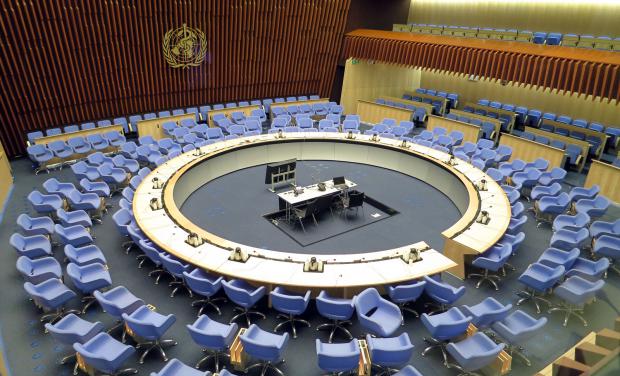
Breaking News
 US Considering a Plan To Split Gaza into Two With One Zone Controlled by Israel and the Other...
US Considering a Plan To Split Gaza into Two With One Zone Controlled by Israel and the Other...
 WHO Drafts Plan For 'Global Health Emergency Corps' To Override Governments On Pandemics...
WHO Drafts Plan For 'Global Health Emergency Corps' To Override Governments On Pandemics...
 3.4 Million Foreign-Born People Claiming Welfare Benefits in Britain
3.4 Million Foreign-Born People Claiming Welfare Benefits in Britain
 Masked Muslim youths take to east London streets to 'defend our community' after police bann
Masked Muslim youths take to east London streets to 'defend our community' after police bann
Top Tech News
 Why 'Mirror Life' Is Causing Some Genetic Scientists To Freak Out
Why 'Mirror Life' Is Causing Some Genetic Scientists To Freak Out
 Retina e-paper promises screens 'visually indistinguishable from reality'
Retina e-paper promises screens 'visually indistinguishable from reality'
 Scientists baffled as interstellar visitor appears to reverse thrust before vanishing behind the sun
Scientists baffled as interstellar visitor appears to reverse thrust before vanishing behind the sun
 Future of Satellite of Direct to Cellphone
Future of Satellite of Direct to Cellphone
 Amazon goes nuclear with new modular reactor plant
Amazon goes nuclear with new modular reactor plant
 China Is Making 800-Mile EV Batteries. Here's Why America Can't Have Them
China Is Making 800-Mile EV Batteries. Here's Why America Can't Have Them
 China Innovates: Transforming Sand into Paper
China Innovates: Transforming Sand into Paper
 Millions Of America's Teens Are Being Seduced By AI Chatbots
Millions Of America's Teens Are Being Seduced By AI Chatbots
 Transhumanist Scientists Create Embryos From Skin Cells And Sperm
Transhumanist Scientists Create Embryos From Skin Cells And Sperm
WHO Drafts Plan For 'Global Health Emergency Corps' To Override Governments On Pandemics...

The World Health Organization has quietly released a new "global health emergency plan" that, if implemented, would hand unprecedented authority to unelected global bureaucrats — giving them the power to command "emergency coordination" not just during pandemics, but for virtually any global crisis, including climate change and online speech.
Buried inside the document's "National and International Emergency Coordination" section, the WHO outlines a sweeping new vision for centralized command.
It's open subordination of national governments to "unified leadership" from Geneva.
"National and International Emergency Coordination" — Replacing Sovereignty with Central Command
The WHO's report makes clear that so-called "emergencies" will no longer be confined to infectious disease. Instead, they can include "climate-related events, natural disasters, or social disruptions" that threaten what the organization calls "global health security."
The document insists that "coordination mechanisms must be established at all levels — national, regional, and international — under the direction of the WHO."
In other words, your country's response to a declared "emergency" would no longer be your country's alone.
The section calls for "alignment" between local and global actors, emphasizing that national systems must "integrate fully with WHO-led coordination structures." It even warns that countries acting independently risk "fragmented and inefficient" outcomes — bureaucratic doublespeak for defying WHO control.
The "Global Health Emergency Corps" — The WHO's Permanent Crisis Force
The most chilling revelation comes in the WHO's own words:
"A framework for a Global Health Emergency Corps (GHEC) has been developed, offering a more uniform approach to health emergency workforce strengthening and coordination. The GHEC recognizes that a consistently organized health emergency workforce in every country, with interoperable surge capacities and an interconnected group of leaders at regional and global levels, provides the basis for a more coordinated and therefore effective response to health emergencies and pandemics."

 You've Never Seen Tech Like This
You've Never Seen Tech Like This 

